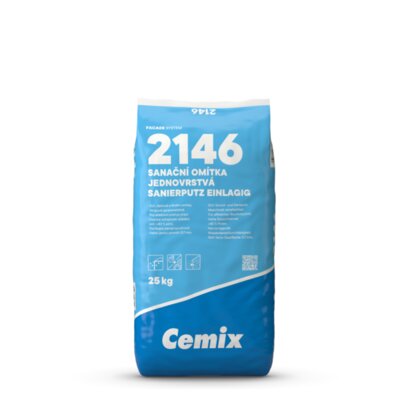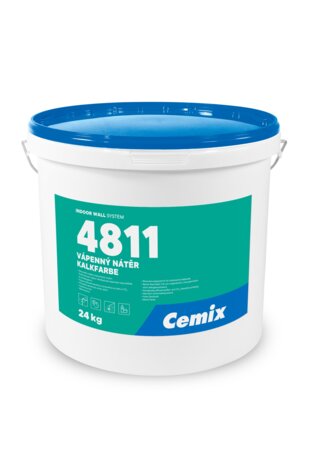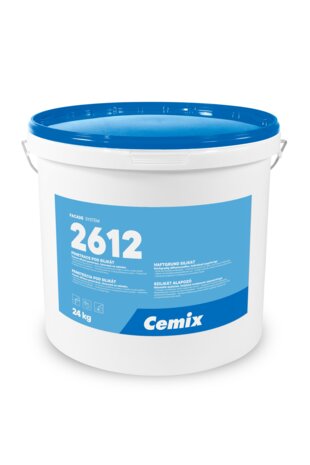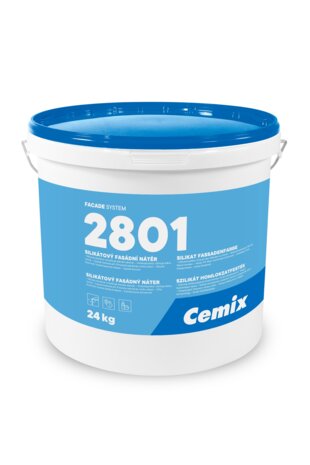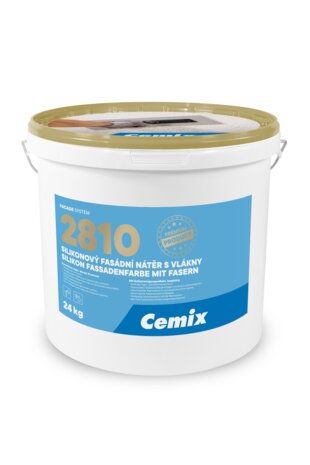2146
RENOVATION RENDER ONE-LAYER
Formerly Name change (available during the year). Previous product 2746.
For efficient renovation.
Time-saving. With machine use.
- Single layer: Base and finishing plaster in one operation. Accelerates the work progress.
- High salt absorption: >40% pores.
- Excellent vapour permeability: For drying damp masonry.
- Machine-applicable: For efficient working.
- Hydrophobic: Suitable also for plinths of buildings.
- Very fine surface: 0,7mm.
Area of application
- Outdoors: wall + ceiling
- Indoor: wall + ceiling
- Vapour permeable
- For plinth
Processing method
- For hand and machine processing
- Special one-layer plaster for the remediation of wet masonry.
- As a levelling and stucco layer.
- For saline and wet structures.
- For stone, brick and mixed masonry.
RECOMMENDED SYSTEM PRODUCTS
Simple restoration of damp masonry and painting
Processing details
Learn more about technical details for processing this product.
Substrate requirement
The substrate must comply with the applicable standards, must be solid, free of loose particles, free of dust, paint, residues of demoulding substances and efflorescence. It must be sufficiently rough, dry and evenly absorbent. The surface shall not be frozen or water-repellent. The substrate must be stable in volume.
Substrate preparation
The layer of degraded plaster is removed to a height of at least 800 mm (for masonry thicknesses of more than 600 mm to a height equal to 1 ½ times the masonry thickness) above the visible limit of damage (damping). The joints are scraped to a depth of approx. 20 mm (depending on the static condition of the masonry). Cracks in the masonry and significant irregularities caused by loose bricks are repaired or filled with the previously recommended Cemix mortar.
Depending on the absorbency of the substrate and climatic conditions, cohesive absorbent substrates need to be moistened with water. To improve the adhesion of the remediation plaster on risky substrates (e.g. stone, material transitions) and where necessary to reduce water absorption, the substrate is provided with Cemix 2140 (2740) remediation underlayment, which is applied in a mesh pattern over 50-75% of the area. If necessary, treat non-standard substrates with a suitable method to achieve the desired properties. The substrate must comply with applicable regulations, standards or material manufacturer's recommendations.
Preparation of the mixture
Prepare the material by pouring the dry mixture into the prescribed amount of water and mixing it. Use potable water or water complying with EN 1008 to mix the mixture. Mix using a slow-speed mixer. Mix to a homogeneous, lump-free mixture and leave to rest. Then mix again briefly. Use suitable machinery when processing by machine.
Water demand

| Quantity | Liters (Min) | Liters (Max) |
|---|---|---|
| 1 kg | 0.29 L | 0.33 L |
| 25 kg | 7.25 L | 8.25 L |
Mixing


Processing instructions
Apply the plaster to the surface with a trowel or other suitable tool. Level it to the desired level in a min. layer thickness. After the material has tightened and is pressure-resistant, smooth the surface with a felt and then with a foam trowel while sprinkling with water. (for a uniform surface appearance). The minimum curing time for the base plaster is considered to be 1 day per 1 mm of applied layer. The plaster forms a base and levelling layer for painting, without the need to apply stucco. The plaster forms a base layer for Cemix coatings. The plaster must not be left untreated for long periods of time (especially over the winter period) in external environments.
Application thickness

| Minimum layer thickness | 20 mm |
|---|---|
| Recommended layer thickness | 25 mm |
| Maximum layer thickness | 30 mm |
Consumption

Consumption renders
| Structure | Consumption in Kg per m² |
|---|---|
| Sanační omítka v tl. 25 mm | 23,75 |
Yield
| Material consumption | at | unit | Yield |
|---|---|---|---|
| 25 kg | 25 | mm | 1,05 m² |
Working time (potlife)

60 min
Treatment after application
Non-absorbent materials prolong the maturation period.
After application, the direct negative effects of sun, heat, humidity and draughts should be avoided. Protect from frost and rain. Direct heating of the surface is prohibited.
Tool and cleaning instructions
Wash off tools with water immediately after finishing work. Clean dried residues mechanically.
References
Technical parameters
| Main binder | Grey cement |
| Made of material | Mineral filler, cement, lime hydrate and special additives to improve processing and performance properties. |
| Flammability class | A1 |
| Max. grain size | 0,7mm |
| Adhesion after dry storage in ≥N/mm²(ETAG004) | 0.2 |
| Thermal conductivity λ in W/(m.K) | 0.29 |
| Water vapour diffusion resistance factor µ | 12 |
| Dry bulk density in Kg/m³ | 1000 |
| Dry bulk density in Kg/m³ to | 1200 |
| Wet density in Kg/m³ from | 1150 |
| Wet density in Kg/m³ to | 1350 |
Download
Contact: Can we help you?
Ask us your question. Write to us whenever you want. We will reply within 48 working hours.
Telephone 800 022 848
Contact us on the toll-free Customer hotline
- Opening hours: weekdays 7:30 a.m.–3:00 p.m.
- Email: info@cemix.cz
